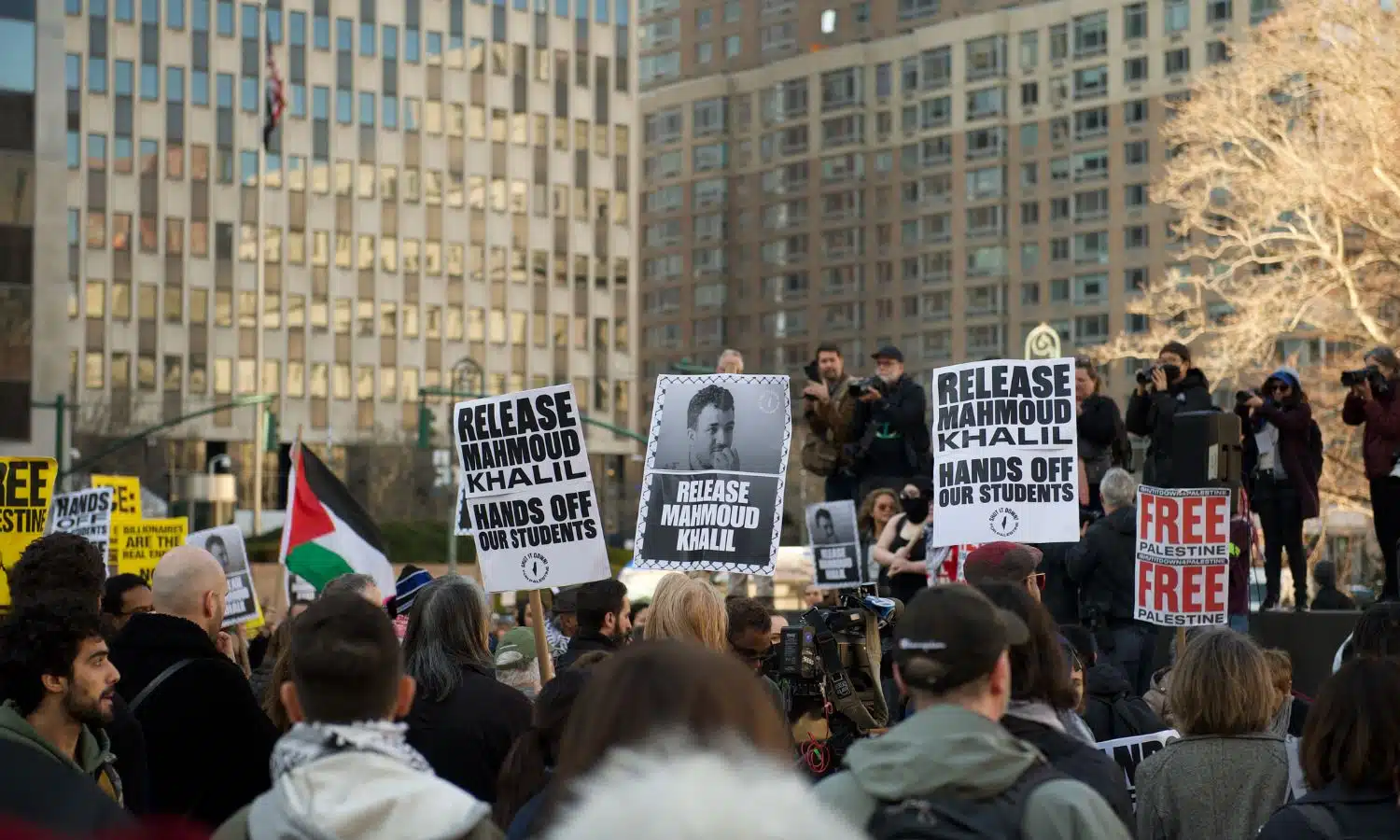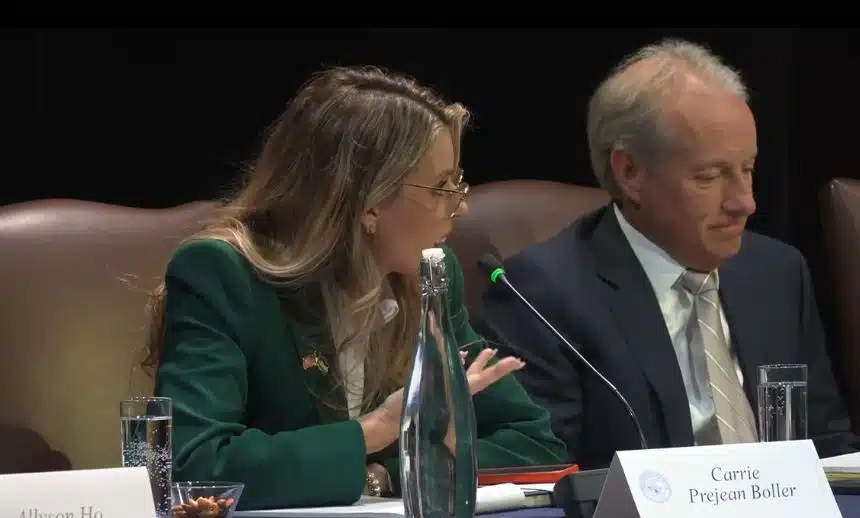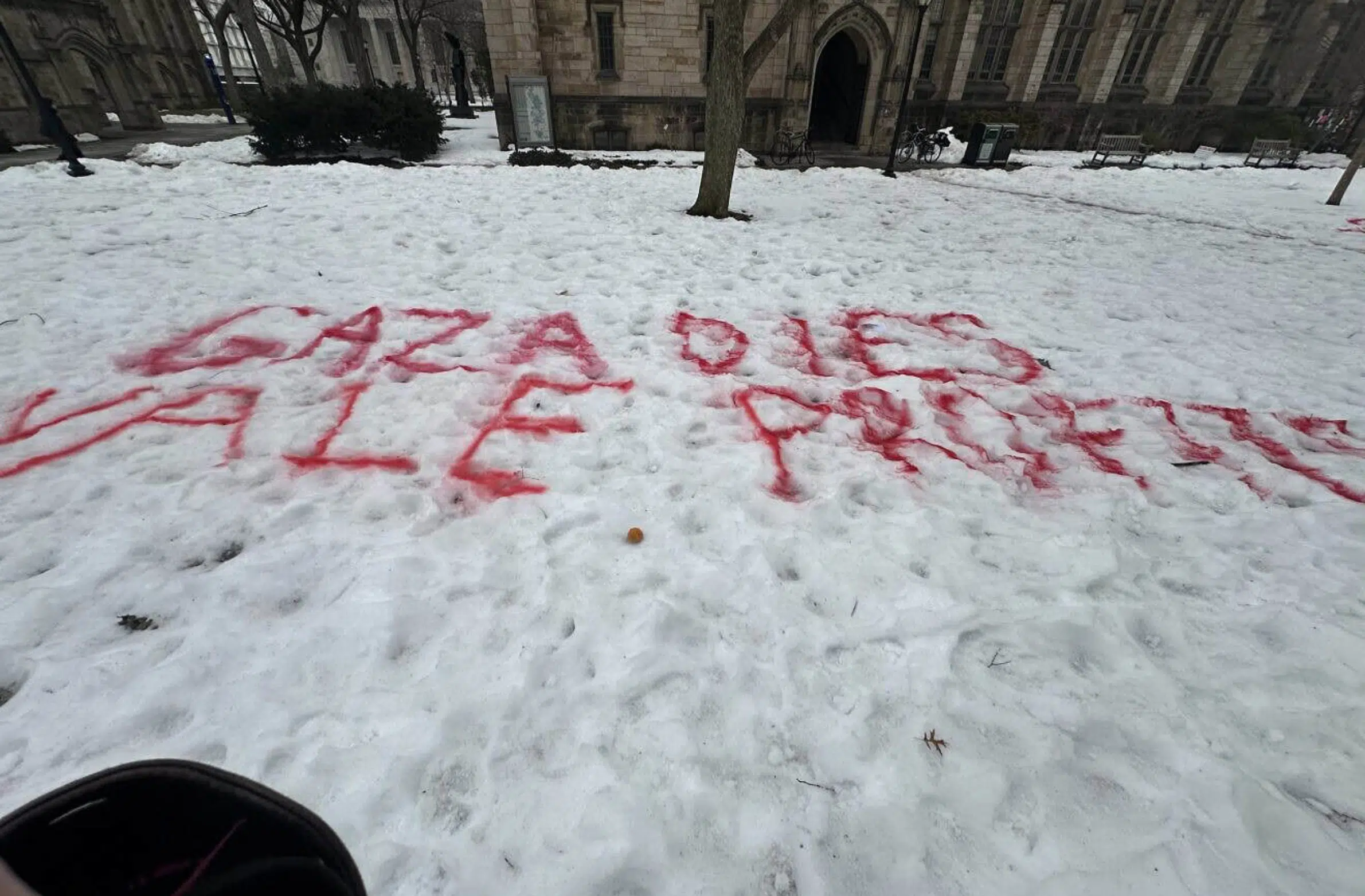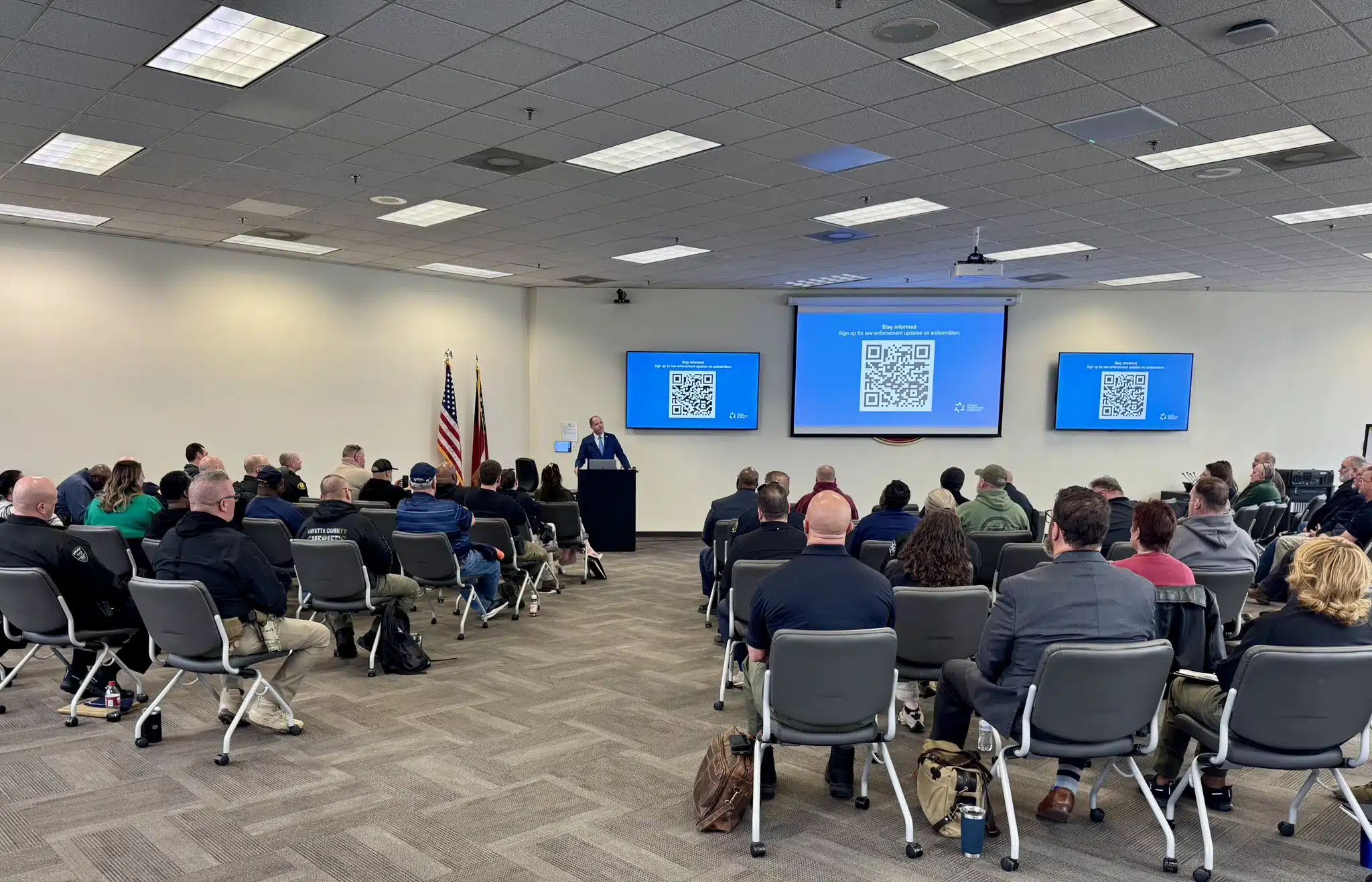|
Getting your Trinity Audio player ready...
|
A new study published by the Antisemitism Research Center (ARC) by CAM this week exposed a significant wave of inauthentic engagement on the X social media platform surrounding the recent detention of former Columbia University graduate student Mahmoud Khalil by U.S. federal immigration authorities.
Working with the Cyabra analytics platform, the ARC found that between Feb. 25-March 25, 19% of 5,857 profiles that produced 9,040 posts and comments about the Khalil case (roughly 1,112) were flagged as fake, nearly double the 7–10% typical in organic discussions.
Of the 1,702 posts and comments from fake profiles, 987 demanded Khalil’s release, falsely portraying him as a principled activist, rather than an instigator of campus unrest and fomenter of antisemitism during the anti-Israel protests at Columbia last spring.
Read the full report – “Unmasking a Pattern: Mahmoud Khalil and the Amplification of Campus Radicalism” – HERE.
Three clear hallmarks of a coordinated effort were detected in the ARC’s study:
Mutual Engagement — Fake profiles boosted each other’s posts through likes, retweets, and comments, fabricating the appearance of organic support.
Recent Account Creation — About 30% of these accounts (roughly 333) were created within the last year, a common trait in influence campaigns deploying new profiles to hijack trending topics.
Synchronized Activity — Bursts of near-identical posts, e.g. “Free Mahmoud Now,” appeared within tight time frames, hinting at automation or centralized orchestration.
Though inauthentic, these fake profiles wielded real influence. Their 1,702 posts amassed over 5,800 engagements — likes, comments, and shares — potentially reaching 630,000 viewers.
While not a viral phenomenon, this reach demonstrates how coordinated fakery can subtly skew narratives, injecting polarizing content into public discourse under the guise of grassroots activism.












